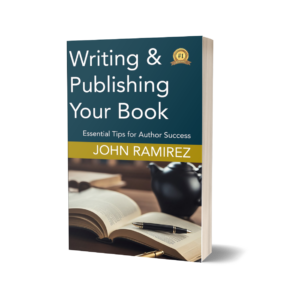Last year, I completed a 30-day book challenge. This was an eye-opening experience as an author. What I learned is that with a proper outline and a game plan, it is possible to write a book in 30 days, but it is extremely hard to do.
Anything is Possible
Over the years, I have found that anything is possible when you have a goal, hard work, and a good strategy. Depending on the amount of research I have to do, realistically, writing a complete book looks more like 90 days to over a year for me.
Manuscript or Book
What are your writing goals? Being clear about your writing goals and what you want to accomplish is key to being a successful writer. The question I ask you is: over the next 30 to 90 days, what are your writing goals? Are you trying to complete a book or just write a manuscript?
If you can write three chapters a week, that would give you a 12-chapter manuscript in 30 days, but not a complete book. For a complete book, I would still need to make time for editing and book design. Three chapters a week can be a lot for a new writer. If you do one chapter a week, you will have a 12-chapter manuscript done in 90 days. This is what Steve and I did for our first book.
During this particular challenge, I was working on my fourth book. Like everything else, with practice, each book gets a little quicker to write. Both of my editors were on vacation during the time of the book challenge. The book cover is also something to consider when working under a short deadline. It takes time for a designer to create the artwork, and a good artist can be booked weeks, if not months, in advance. As a result, I ended up with only a manuscript at the end of my 30-day book challenge.
Adapt Your Goals
Setting goals is an ongoing journey in the writing process. While you write, you may discover new information that you want to incorporate. When this occurs, reassessing and adapting your goals becomes essential. It’s not about giving up on challenging objectives or altering deadlines; rather, it’s perfectly acceptable to make adjustments to achieve your desired outcome. By refining your goals, you can ensure that the quality of your work remains high, rather than compromising it to meet a specific timeline. Remember, goals serve to keep you focused and motivated throughout your writing journey.
Valid reasons to adapt your goals should stem from unforeseen circumstances and things that are out of your control. Illness, world events, family emergencies, and the availability of others are the types of situations that can force you to modify your original goal. Make sure to read your contracts. Keep in mind that if you are doing a pre-launch or have committed to a print date, these reasons might not be valid options. There can be significant consequences, such as being unable to publish on a platform or losing a contract by not meeting your end of the agreement.
When struggles happen, if you can still achieve your deadlines with some extra effort, I encourage you to push through and make it happen. I am certain you will thank yourself for the extra effort. When we push through the hard times, we often find that we are capable of more than we thought.
Writing it Down
Write down your goals and how you plan on accomplishing them. When you write down your goals and the steps you are taking to achieve them, they become more real. If you can see the goal and read it from time to time it helps to hold yourself accountable.
I use dry-erase pens and write my goals across the top of my bathroom mirror or sliding glass door. This reminds me to stay on track because getting sidetracked takes me away from my publishing achievements, making it harder to complete what I have set out to do.
Make a Road Map
What are you writing? It’s time to get organized and plan your road map to writing the book. To accomplish my writing goal, I first make a folder on the computer, then back it up to the cloud. The backup is one of the most important steps. I lost a whole book once when I had not backed it up to a separate location. The black screen of computer death taught me everything should be saved in more than one place.
Make an outline of the book with bullet points for each chapter. Sometimes I do this on cardboard or large pieces of paper so I can visualize the chapter layouts. For me, using a different format than my computer helps my creative mind see things differently. At this stage, I also title my book and chapters. This helps me stay organized and on track. The titles might change after I finish writing the manuscript, but it gives me a starting point.
Get to Writing
For each chapter, place it in the folder that’s saved in the cloud. This will allow you to work on individual chapters as you feel inspired. I might start in the middle or even at the last chapter of the book. This approach also allows me to add chapters as they come to me during my dreams. It may sound crazy, but some of my best chapters have come to me in my sleep.
To reach my full potential as a writer, I want to get my thoughts down as quickly as possible. I must employ strategies to ensure I don’t miss anything and capture ideas as they arise. I try to let my thoughts flow onto the page without restriction. That being said, I also want to keep in mind that a large percentage of everything I write gets cut during editing, so I need to ensure I’m producing good-quality content. There will be plenty of time to edit later. The little red lines can be a distraction, so this is a good time to turn spell check off and just let the words flow.
We will share tools to help speed up the writing process in another blog, but for now, you should have the structure needed to begin your work of art. Find a place that inspires you and get started sharing your story or wisdom with others. Remember, the goals are there to guide you to completion. The outline and title can change up until the point you send it to print, so relax and start writing.







